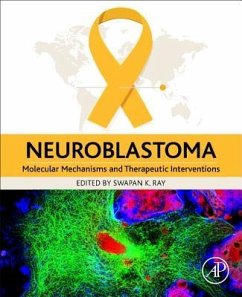
Molecular Approach to Cancer Management

PAYBACK Punkte
55 °P sammeln!
Molecular Approach to Cancer Management discusses molecular mechanisms of cancer initiation, growth and secondary spread, emphasizing how this information can be used to devise new modes of treatment of cancer, especially in combatting secondary spread. The book addresses the basic concepts relating to cancer biology, the genetic determinants, and the signal transduction cascades associated with tumor growth, EMT, stem cell maintenance and propagation, and invasion and metastasis. The salient features of the signaling systems that are amenable to targeted manipulation are emphasized to facilit...
Molecular Approach to Cancer Management discusses molecular mechanisms of cancer initiation, growth and secondary spread, emphasizing how this information can be used to devise new modes of treatment of cancer, especially in combatting secondary spread. The book addresses the basic concepts relating to cancer biology, the genetic determinants, and the signal transduction cascades associated with tumor growth, EMT, stem cell maintenance and propagation, and invasion and metastasis. The salient features of the signaling systems that are amenable to targeted manipulation are emphasized to facilitate research and development in the design of novel therapies and for the planning of new trials.
This book is the only unique volume with coverage of topics that target therapy. As such, it is a valuable source for cancer researchers, molecular oncologists and members of the biomedical field who are interested in knowing more about molecular approaches to cancer therapy.
This book is the only unique volume with coverage of topics that target therapy. As such, it is a valuable source for cancer researchers, molecular oncologists and members of the biomedical field who are interested in knowing more about molecular approaches to cancer therapy.













